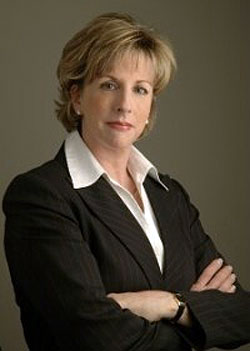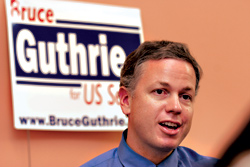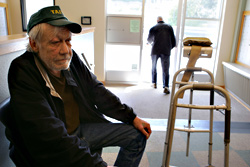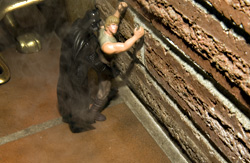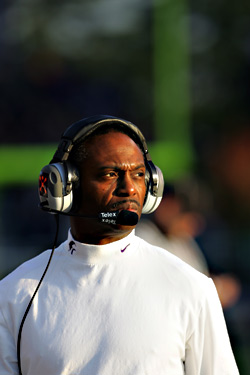The King County Sheriff’s Office and Sheriff Sue Rahr have filed a complaint against the Seattle Post-Intelligencer with the private, nonprofit Washington News Council, which offers to broker or judge disagreements between people and the press, and the council has agreed to handle the complaint. The complaint is in response to the P-I‘s yearlong series “Conduct Unbecoming,” which has reported on badly behaving deputies and the kind of discipline they received or didn’t.
In an accompanying letter to the council, Rahr states, “The P-I has tried to destroy public trust in the Sheriff’s Office.” She further accuses the paper of writing stories that have been “intentionally biased, unfair, malicious and lack[ing] balance.” The series, principally authored by investigative reporters Eric Nalder (a two-time Pulitzer Prize winner for his work at The Seattle Times) and Lewis Kamb, in short, painted KCSO as a police department where deputies can violate department policies, such as those governing use of force, and either get a slap on the wrist or be allowed to retire.
Earlier this year, Rahr met with Executive Editor Ken Bunting, Managing Editor David McCumber, and Publisher Roger Ogelsby to complain about the series. Rahr claims that since the meeting, 33 more stories have appeared “still lacking fairness and balance.” Glenn Drosendahl, the paper’s reader representative, says that, initially, the paper will try to hash out an agreement between it and KCSO.
But given the breadth of the complaint, encompassing 100 articles and editorials, and the bad blood between Rahr and the P-I (she has refused to speak with Nalder and Kamb since last fall), it is difficult to imagine a settlement of differences.
The Washington News Council is controversial in journalism circles. As a nonprofit private organization, it has no power to force a media outlet to do anything. It fields complaints about press coverage, decides whether to accept a complaint, tries to broker a compromise between the two parties, and, failing that, may hold a public hearing whereby its board of journalists and members of the public decides who’s right. The idea is to give people steamed at the media a means to redress grievances outside court.
In 2003, the council held a hearing on allegations involving KIRO-TV and an investigative series the station aired on so-called downer cows. KIRO refused to participate in the process. The news council found KIRO at fault in a complaint brought by the Washington beef and dairy industries. (See “Journalistic Downer,” May 28, 2003.)
John Hamer, the council’s executive director and a former columnist for Seattle Weekly and the Times, says the council delivered the complaint to the P-I Tuesday, Aug. 1. “We think it is a serious complaint,” he says. “We make no judgment of the merits at this point.” For the council to accept a complaint, the complaint must raise “serious questions of journalistic performance or ethics.”
